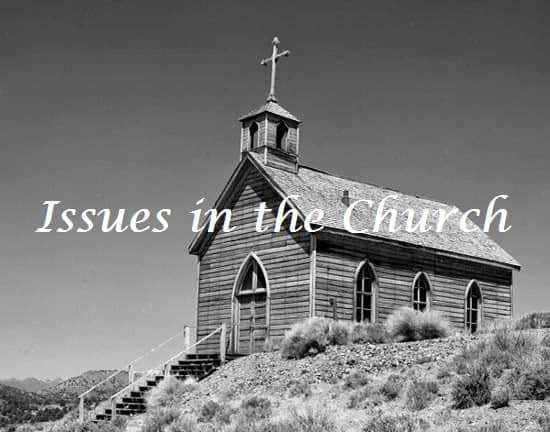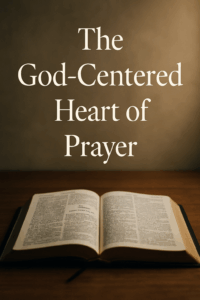⏱️ Estimated Reading Time: 6 min read
I am pointed in my conversations with all the men and women that come to our recovery program: we think and talk about addictions from within a robust Christian worldview. That means that while other programs intentionally avoid the word “sin,” we do not. We speak of the relationship between addiction and sin because it provides a greater understanding of addiction’s destructiveness, and a greater context for an addict’s hope.
I understand the reluctance of many to speak of sin. It’s a word full of baggage, namely theological baggage. In the contemporary counseling world “sin” is a word that brings condemnation and despair of self-willed change; it is therefore automatically ruled out as unhelpful. If any community, however, can appreciate the value of the word sin it ought to be the community of recovery. For, in recovery communities, there is a paradoxical understanding that addictions navigate the terrain between voluntarism and bondage. While most modern approaches to recovery will speak of addiction as a “disease,” they nonetheless point people towards a means of healing that is not pharmacological. They recognize, in other words, that there is some sense of both responsibility and slavery at work in the nature of addiction. This is not unfamiliar ground to the theologian.
The Bible’s doctrine of sin speaks of these two paradoxical realities too. We are both at one and the same time responsible for our sin and yet enslaved to our sin. We can speak, with the apostle Paul, as both “letting sin reign” and as “sin reigning” (Rom. 6:12). This parallels the experience of addiction. In Ed Welch’s words, addiction is “voluntary slavery” (see Crossroads). Sin, then, can be a useful word to describe addiction.
There is immense value in seeing this connection. For starters, it allows us to see more clearly the destructiveness of addiction. The popular characterization of the addict is simply not accurate. We often believe that the addict is so self-deceived and so in-love with their drug that they cannot fathom how destructive their habits are. The personal testimonies of addicts, however, reveal quite the opposite.
Take Vince, for example. Vince could describe to me in detail all that the drugs were doing to his brain, how his addiction had destroyed relationships and burned bridges, created unemployment, and left him homeless. He was not deluded about his situation.
Nor was Amy, who hated her “master.” She didn’t want to drink, but she would often say that she knew she would. She could describe a sort of “out of body experience,” where she would watch herself pour another glass even though she didn’t want one.
These are just some of the common testimonies of addicts. They both love and hate their sin. Many of the men and women who come to recovery do not need to be convinced that their habit is destroying them. The problem is that this news is not sufficient to drive them to change.
The category of sin helps us here immensely. The problem with the way most people speak of the destructiveness of addiction is that they boil it down to physiological and social destruction. Without the weightiness of the moral and spiritual baggage of the category of sin this is the best we can do: stop using drugs because you are killing yourself and are ruining society. The problem is, however, that addict started using because something about life and society wasn’t right, wasn’t enough. They didn’t like life, and society had nothing to offer them. The category of sin expands our understanding of addiction’s destructiveness. It reveals the depth of our habits. Addiction is a betrayal of God, a rejection of His will, character, and love. It is the forsaking of living water for broken cisterns (Jer. 2:13). It is idolatry.
Kent Dunnington helped crystallize this point for me in his fantastic work on the nature of addiction. He points to the insufficiency of the atheological conceptualization of addiction. He writes:
If our notion of good and human flourishing is restricted to normal physiological and social function, then our ability to characterize the destructive nature of addiction will be similarly restricted. Moreover, such a restricted view of human flourishing gives those caught in the throes of addiction an impoverished sense of what they may hope for. Thus people are encouraged to battle their addictions in order that they may become “productive members of society…” We can only bring out the profound depth of addiction by placing it within a broader frame of convictions about human nature and human destiny. (Addiction and Virtue, 139)
We need theological language to truly see the destructiveness of addiction. Because addiction is idolatry, its destructiveness is not simply about life and society, but about afterlife and spirituality.
We also need such language to see the hope beyond addiction. If the problem with addiction is that the awareness of self and social destruction are not enough to motivate my repentance, then I need a bigger vision to capture me. I need to see something more compelling that will motivate my repentance. That something bigger is the fulfillment of what I was made for in a relationship with God.
Sin’s loaded terminology points to our separation from God, the One who created us for himself. Life and social participation are not enough, especially filled with the vacuous beliefs of the American dream. But in a relationship with God – which grants true meaning, purpose, and value to the soul of man – this gives me real hope beyond addiction. This gives me a real impetus to repent of addiction.
It also points me to the hope that I can overcome addiction. If sin is my problem, and I can’t simply will myself into transformation, then I need an external power to help me (something even AA admits), and the Bible presents Jesus Christ as our solution to sin (something AA does not admit).
The relationship between addiction and sin is an important starting place in the process of recovery. It is not the ending place, for there is much involved in the process of overcoming addiction. Applying the label of “sin” to the struggle of addiction does not magically make recovery possible. It is simply a starting place to grapple with the deeper truths of addiction’s destructiveness and of the hope beyond substance abuse. Use the language of sin in your church-based recovery program. It is only a starting place, but it is an important starting place.




